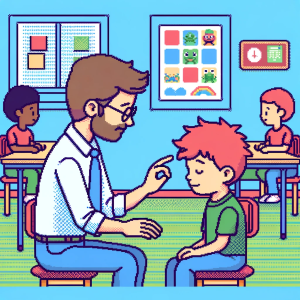
Understanding the Impact of Trauma on Learning: A Focus on Childhood Education and Cognitive Development
The intersection of trauma, education, and psychology has been the focus of recent studies, underscoring the profound impact adverse experiences can have on children’s learning and psychological outcomes. Understanding these influences is crucial in addressing educational needs and development for children who have experienced trauma.
Trauma and Cognitive Development
A report by Science Daily highlights a significant link between childhood trauma and later life challenges. This study found that early exposure to trauma, such as violence or displacement, can have long-lasting effects on children’s cognitive functions and mental health, making them susceptible to learning difficulties and reduced academic performance (New Scientist).
Connecting these findings to school psychology, it becomes apparent that trauma can distort cognitive development, affecting memory, attention, and executive functions, all of which are critical for learning and adaptation in educational settings. Neurobiological changes triggered by stress may also impair a child’s ability to process information, learn new concepts or even cope with everyday school tasks.
The Role of Education in Mitigating Trauma Effects
The educational system has a pivotal role in countering the negative impacts of trauma. According to United Nations educational initiatives, providing a supportive learning environment can help children with traumatic backgrounds regain confidence and improve their learning capabilities (UN News).
Programs aimed at creating safe spaces in schools, promoting student well-being, and decreasing exposure to further trauma have shown beneficial effects in regions affected by conflict or poverty, highlighting the importance of supportive educational policies.
Integrating Trauma-Informed Practices
Incorporating trauma-informed practices in schools is a strategy that can lead to significant improvements in educational outcomes. These practices include:
- Teacher Training: Equipping educators with the skills to recognize and respond to signs of trauma can help mitigate adverse effects. Teachers trained in trauma sensitivity can create more inclusive and understanding classrooms.
- Safe Learning Environments: Establishing environments where children feel safe to express themselves and engage in education without fear of trauma triggers.
- Student Support Services: Providing counseling and psychological services to help children manage stress and emotional difficulties associated with trauma.
Conclusion
Addressing trauma in educational settings requires a multifaceted approach involving cooperation between psychology and education sectors. By enhancing awareness among educators and integrating structured support systems, schools can play a crucial part in reversing the adverse effects of trauma and fostering resilience in children.
As research continues to unravel the complexities of trauma on learning, it is clear that consistent, supportive educational practices can change the trajectory for countless children, turning classrooms into bastions of hope and recovery.



